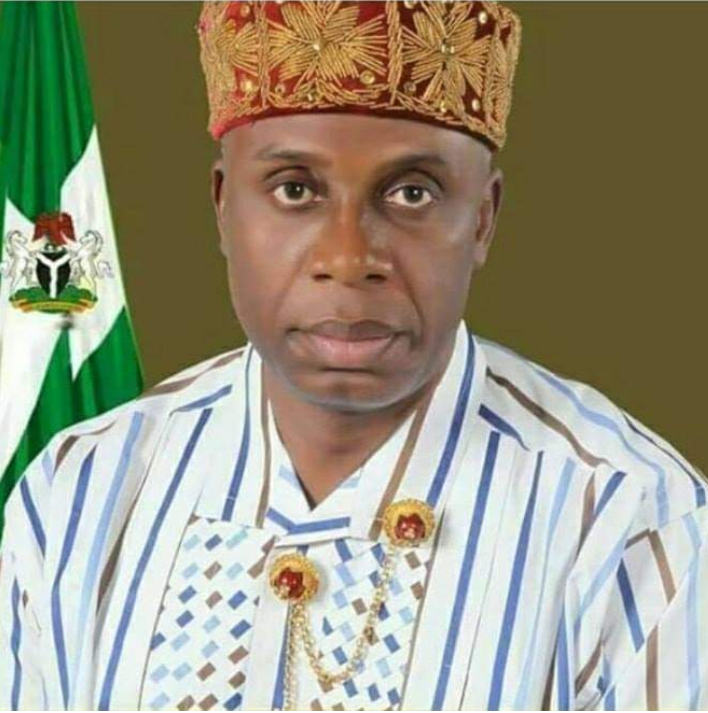Igbo group tasks FG on dredging, developing of Oseokwa Seaport
Chidi Ogbuokiri
Worried by Federal Government’s delay in dredging the Oseakwa Seaport (Orashi River Port) in Ihiala Anambra State, a nonprofit organisation, New Era Foundation have said that the delay is not in the best economic interest of Nigeria, saying when developed into a seaport, it will be cheaper than the Lagos ports and will take over 35 per cent of Nigeria’s entire marine business.
It stated that the Oseokwa Seaport when dredged and developed will be the deepest in Nigeria, with about 20 meters draft, will bring to an end the Apapa gridlock which defied all solutions.
President of the group, Mr. TonyMax Osakwe who disclosed this in an interview with National Mail, said that the Orashi River is the closest potential seaport “we have in Nigeria that linked Ndi Igbo to the Atlantic Ocean.
He said that it will be cheaper to import goods to Nigeria from the Orashi River Port, “It may interest you to know that Lagos Seaport to Atlantic Ocean is 60 nautical miles, while the potential seaport we have in Oseakwa that was abandoned in 1959 is only 18 nautical miles to the Atlantic Ocean.”
According to him, shipping goods from China to Lagos with Lagos Seaport is much farther than shipping goods from China to Oseakwa Ihiala, using the Seaport at Urashi River Ihiala Anambra State.
“This means that Imo, Abia, Enugu, Ebonyi, Anambra, Rivers, Delta, Edo Beyelsa, Benue, Kogi and Akwa Ibom business men living in Lagos will find it easy to have their business in South- East and South-south by using Oseakwa Seaport when it’s dredged.
He said because of the Apapa traffic gridlock, “Shipping goods from China to Nigeria cost N800, 000 for 40ft containers.
“To move the same container from Lagos Seaport to Trade fair Lagos cost N1million, To move the container from Lagos to Southeast Nigeria cost N1.2 to 1.5million, FG charges N20, 000 each day for a 40ft container packed at the seaport.
What that means, according to him, is that it is cheaper to import from China to Nigeria, than to move the goods from Lagos to any part of the country.
Meanwhile, a study by the administration of Chief Ikedi Ohakim, former governor of Imo State on the issue, noted that the South East is not landlocked. “It is only our economy that is locked. One quick way of unlocking the economy of the South East is through marine business.
The study indicated that contrary to the impression that the South East is landlocked, the truth is that it has one of the potentially deepest seaports in the country at Osemoto/Oseokwa in Imo and Anambra states.
A seaport was designated there in 1959, but the project was abandoned and the admiralty member erased for obvious political reasons. African Development Bank (ADB) feasibility report on this is unambiguous.
It said, “Oseokwa (Ihiala LGA, Anambra State) and Osemoto (Oguta LGA, Imo State) are the deepest natural harbor in the country (over 20m deep) and offer real naval and marine transportation platforms if developed. Besides, it lies only 18 nautical miles to the Atlantic Ocean and a strategic hub for the oil industry and inland dry-docks to promote trade.
“This potential seaport has the capacity of handling over 35 per cent of marine business in Nigeria. As a matter of fact, it was the attraction to these potentials that made my administration in Imo State to site the Oguta Wonder Lake and Resort Centre in the area to encourage the Federal Government and foreign investors. If Ndigbo pursue and complete the seaport, it will also open up over 3,000 square kilometers of the most fertile agricultural land that has one of the highest alluvial deposits which has been in existence for well over a million years.”
Ohakim stated in the report that “this deep seaport will create over two million jobs, directly and indirectly, in marine business, oil and gas, power, education, housing, agro-food industry, entertainment, tourism, etc. With that type of setting, Igbo youths will have no need to crisscross the country in search of jobs and in the process endangering their young lives.”


